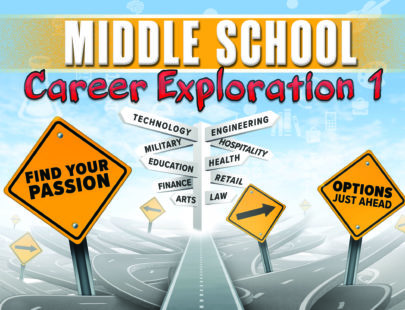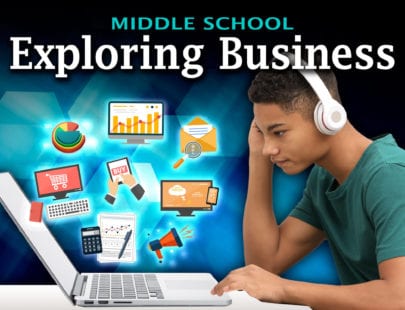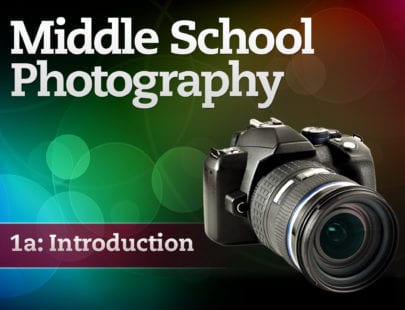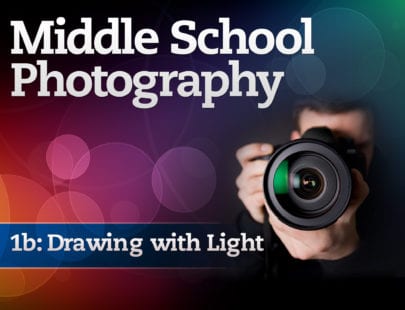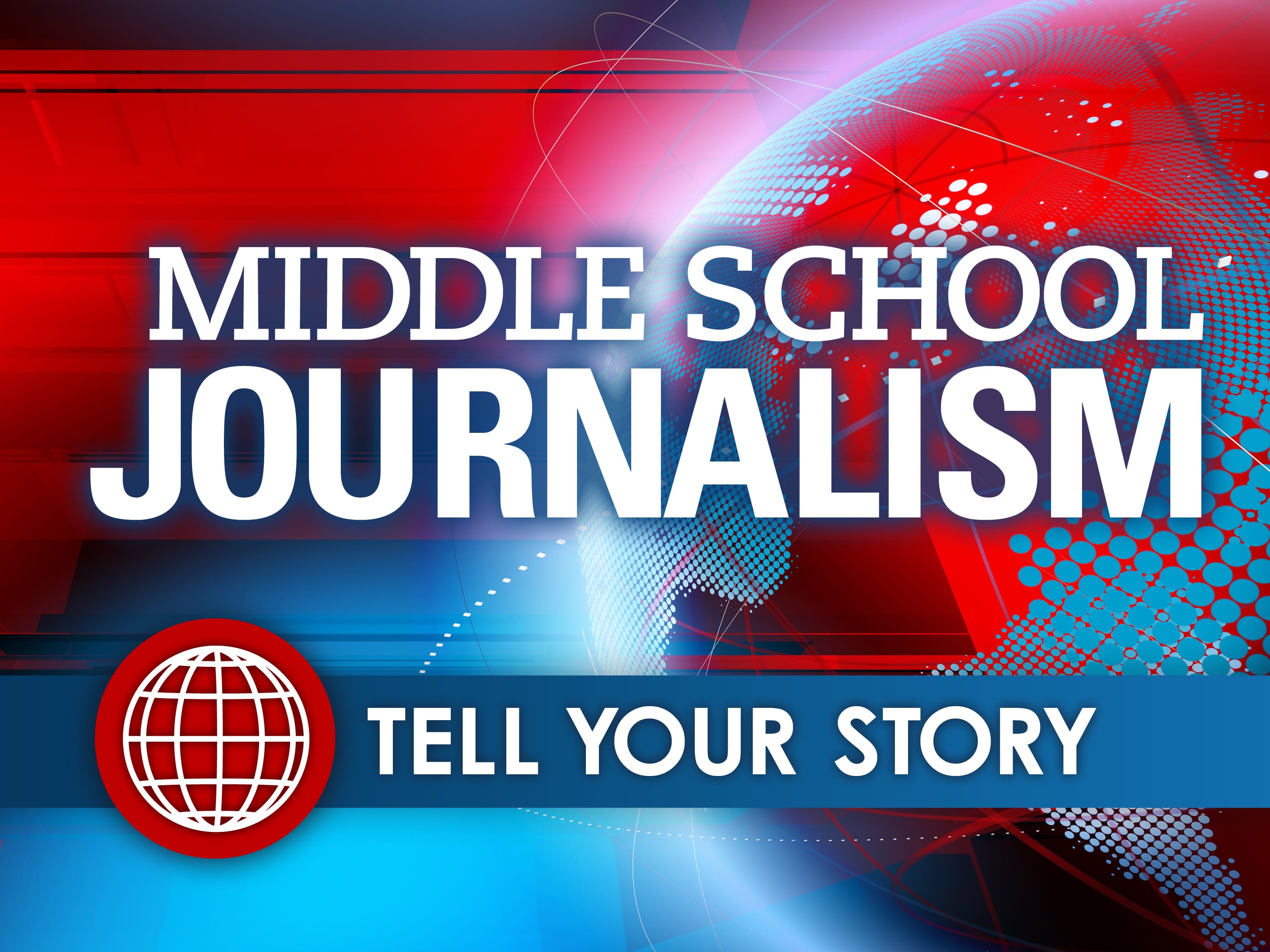
Middle School Journalism: Tell Your Story
Are you someone who likes to write to get the story straight? Skilled journalists know how to find key facts and write them up in a way that makes it easy for others to read. In this course, you’ll learn how to ask the right questions, how to gather information effectively, organize ideas, format stories, and edit your articles. Get ready to break that news!
Units at a Glance
Unit 1: What is Journalism?
In this unit, we will learn all about the world of journalism. We will discover what journalism is and who is involved in the process. We will also learn about different types of journalism and media, including newspapers, magazines, electronic media and photojournalism, and the different types of news they present.
What will you learn in this unit?
- Define journalism
- Discuss the purpose of journalism
- Define key terms such as reporter, editor, journalist and audience.
- Discuss the different type of journalism
- Identify different types of news
- Explain key roles in the world of journalism
Unit 2: Analyzing Media
In this unit, we will discover why and how certain types of stories appear on the news. We will learn that while the news is supposed to stick to the facts, sometimes reporters include elements in the stories that are designed to help us think a certain way. By gaining an understanding of what makes something newsworthy and learning how to analyze the media, we will learn to look beyond those tricks and make our own decisions and judgments about the stories in the news.
What will you learn in this unit?
- Explain what makes a story newsworthy.
- Discuss elements of a good news story.
- Define and give examples of audience.
- Define and recognize bias.
- Discuss why reporters include opinions.
- Explain the role tone plays in a news story.
- Explain how to analyze a news story.
Unit 3: Gathering Information
In this unit, we will discover how journalists gather information and the types of sources they use when reporting the news. We will also discover the importance of finding the right sources, avoiding sources that could lead reporters astray and focusing on finding credible sources of information. In order to report on the news, journalists must have news to report. We will learn how quality journalists find information and use those techniques to find information of our own.
What will you learn in this unit?
- Identify the difference between primary and secondary sources.
- Discuss the importance of gathering credible information.
- Explain the signs of sources that are not credible.
- Identify ways to gather information.
- Discuss ways to gather different types of information.
- Explain how journalists use the information they gather.
- Describe investigative journalism.
Unit 4: Organizing Information
In this unit, we will learn how journalists take the information they have gathered and organize it so they can write an article. We will also discover the different types of articles journalists can write and the purposes they have for writing. This will help us understand why journalists choose particular organizational techniques. We will then be able to determine which organizational technique is best for each type of news story or purpose.
What will you learn in this unit?
- Identify different purposes journalists have for writing.
- Describe the two main types of news stories: hard news and soft news.
- Explain the different types of soft news.
- Describe how journalists determine what information is important.
- Discuss the components and role of a lead.
- Describe the two main organizational techniques for hard news.
- Explain which organizational technique is best for a particular article.
- Explain the pros and cons of each type of news story.
- Explain the pros and cons of each organizational technique.
Unit 5: Writing an Article
In this unit, we will discover what goes into writing an article. We will review the main methods writers use to organize an article and then go over an article’s most important parts. Articles must be written in a specific way, so we will learn how to write an article with the correct point of view and using an appropriate voice. This unit will also cover how journalists revise their articles and make sure they meet their deadlines.
What will you learn in this unit?
- Describe methods for organizing an article.
- Identify the main parts of an article.
- Explain how an article is written.
- Use third-person point of view to write an article.
- Use active voice to write an article.
- Explain the purpose of deadlines.
- Describe how to revise an article.
- Discuss the difference between a story and an article.
- Identify quality headlines.
Unit 6: Preparing a Newscast
In this unit, we will learn all about the world of broadcast journalism. We will discover the different types of newscasts and learn how to prepare and organize a newscast. We will also identify the different story forms used in broadcast news and learn what factors are most important when writing a story that will appear on the news. The on-air news stories you see may seem simple, but you’ll see that a lot of elements go into preparing a short newscast.
What will you learn in this unit?
- Explain the difference between writing for print and writing for on-air news.
- Recognize the different types of newscasts and their purpose.
- Explain the main story forms.
- Identify the major components of a newscast.
- Describe how to write a broadcast news story.
- Describe and demonstrate how a newscast is organized.
- Explain the importance of graphics and video in a newscast.
- Demonstrate writing a story using the different story forms.
Unit 7: Editing an Article or Newscast
Once a news story has been written, it must go through an editing process. We will learn all about the editing processes for both print and broadcast journalism. This unit will cover the different types of editors and what they look for. We will also talk about some of the common errors found in both articles and newscasts and learn ways to avoid issues such as plagiarism and fabrication. If a news piece is not edited properly, it can become a major issue for a journalist, a newspaper and/or a TV news show.
What will you learn in this unit?
- Describe the different types of editors involved in the editing process.
- Explain the importance of editing.
- Understand the difference between macro editing and micro editing.
- Discuss issues with plagiarism and fabrication and ways to prevent them.
- Describe the editing process for a newspaper article.
- Describe the editing process for a newscast.
- Recognize the common errors found in articles an newscasts.
- Edit an article to correct major issues.
Unit 8: Media, the Law and Ethics
In this unit, we will discover some of the laws and responsibilities that guide journalists as they publish the news. We will learn about the First Amendment and how it protects journalists in the United States, but will also discover that some countries do not allow journalists the same freedoms. We will also discover some of the laws journalists must abide by and discuss the role that ethics plays in the field of journalism.
What will you learn in this unit?
- Explain the difference between the law and ethics.
- Describe the First Amendment rights for journalists.
- Understand the lack of freedom journalists have in other countries.
- Determine when a journalist should not ethically publish a story.
- Explain how the law and ethics play a role in determining the stories a journalist covers.
- Discover specific examples of when journalists did not follow the law or acted unethically.
- Learn the consequences of breaking the law or not acting ethically in journalism.
Unit 9: Media and Society
In this unit, we will discuss the role media plays in society. We will discover how journalists can influence what news people are talking about and how they can affect people’s emotions. We will learn how media journalists reach different types of people and how they make sure they have the news people are listening to. This unit will also introduce us to a new kind of journalist, the Internet journalist, and explain how the Internet is changing the way the news is discovered and reported.
What will you learn in this unit?
- Describe the role media plays in society.
- Explain how the media determines what stories are important.
- Discuss how the media gets people to experience different emotions.
- Describe how media can enhance or manipulate information.
- Cite specific examples of how the media has affected society.
- Explain how the media reaches different audiences.
- Discuss the way the internet has changed journalism.
- Explain different ways the internet is used to spread news.
- Describe how the media reflects diverse voices of people from various backgrounds.
- Discuss examples of alternate viewpoints in the media.
Unit 10: A History of Journalism
In this unit, we will learn how the news has changed over time. We will discover how and when the first newspapers were created and how the news was spread before newspapers were so easy to find. We will also look at the history of broadcast journalism, discovering when radio, newsreels and televisions became important ways to share the news. From there, we will take a look at the newest form of journalism – internet journalism – and discuss how it has changed the face of journalism and what it means for the future of the news.
What will you learn in this unit?
- Explain how the news was spread before newspapers, television, and radio.
- Discuss the history of the creation of the newspaper.
- Discuss the history of broadcast journalism.
- Describe how journalism has played a role in American history.
- Describe how the internet has changed the news.
- Explain the history of African-Americans in journalism.
- Explain the history of women in journalism.
- Analyze the effect journalism has had on society.
- Analyze the effect society has had on journalism.
Required Materials
Software
- Word processing software
